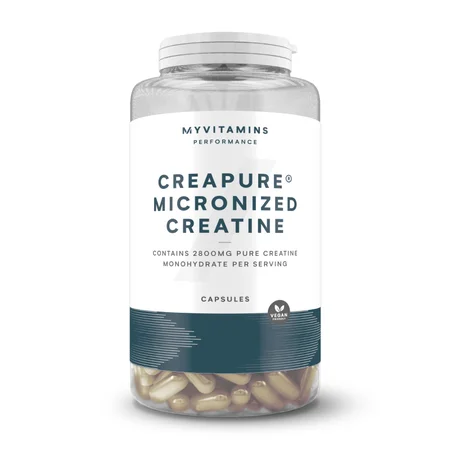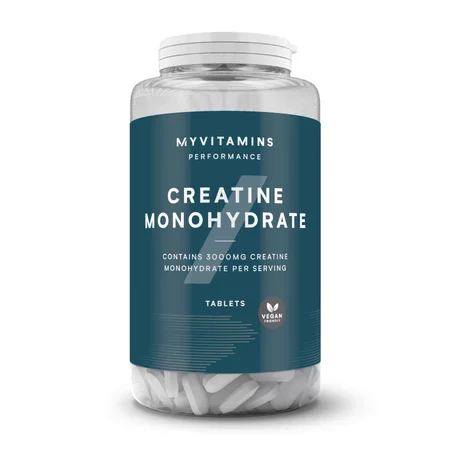Is It Bad To Take Creatine Before Bed?

Creatine is generally considered the gold standard supplement for athletes and recreational lifters, based on its scientifically proven effects on strength, power and lean muscle tissue. You know you can take creatine after your workout, but can you take creatine before bed?
Creatine is one of the original supplements for building strength and size in all types of athletes. Unfortunately, we've lost touch with how and when to correctly use this supplement to unleash its maximum potential. Your body naturally produces around 1-2 grams per day using amino acids and you can also consume creatine through proteins such as fish and meat.
However, supplementing with creatine is a powerful way to significantly improve your overall muscle mass and high-intensity exercise performance, by increasing your intramuscular storage of creatine.
Get all the details from an expert below...
Why Do We Take Creatine?
Firstly, we'll briefly talk about why creatine is beneficial for us and who should be taking it. Creatine is one of the most researched supplements out there – scientifically proven to increase the amount of energy, or ATP, we can ufse for heavy and intense movements. What that means is that it can help you push out that last rep or sprint those few seconds faster.
You won't see the strength and muscle-building benefits immediately, but being able to do an extra rep every set will have a compounding effect that you'll notice over time as you build more muscle. Anybody that's trying to grow stronger in exercise sessions that last less than 60 seconds (such as weightlifting, sprinting, most sports) will see the most benefits from creatine. Anything above 60 seconds of a continuous endurance workout will benefit more from other supplements, such as lean muscle. This is a naturally occurring amino acid that's more suitable for those carrying out prolonged endurance exercise.
Alongside its performance-related benefits, creatine may also increase mental performance (i.e. boosting memory, cognitive ability and neural connections).

When to Take Creatine
There are very few limitations of when and what type of creatine to take for maximum effectiveness. Many recommend a creatine-loading phase, which means taking the proper dosage every day to keep your muscles saturated with creatine. Doing this means that you will be taking doses throughout the day, including possibly taking creatine before bed.
If you wish to do a creatine-loading phase, and you want to add it to your morning smoothie, go ahead! Your pre-workout drink, sure. Creatine before bed? As it isn't a stimulant, there's no reason why you can’t take it before you hit the sack.
While there are no strict rules on when to take creatine, studies have shown that supplementing with creatine 30 minutes before your workout and then immediately after as a part of your post-workout shake or meal can improve its effectiveness. Taking it 30 minutes before ensures that your body has had time to absorb the creatine before your workout, while topping up with it after replenishes and recovers the muscles.
Taking creatine alongside fast-acting carbohydrates such as dextrose and maltodextrin also maximises its absorption, as they cause a spike in insulin levels. Research has shown that insulin is important in allowing creatine to be taken up by muscle cells and therefore ensuring that the body is maximising its absorption.
How to Take Creatine
As for the proper dosage, you can take a loading phase of 20 grams per day for a week, divided between 4 x 5 gram servings in order to quickly saturate your muscles. However, some research suggests that a loading phase isn't necessary and that simply taking the maintenance dosage daily will have the desired effect.
Whether you do or don't choose to undertake a loading phase, the maintenance dosage is around 5 grams per day for everyone. This includes training days and off days. Some people also choose to cycle their creatine supplements by taking it for 6 weeks and then having 6 weeks off. However, there is no real evidence that this is necessary to achieve the best results.
As a highly researched supplement, it's no surprise that there are varying forms of creatine available. The most established of these is Creatine Monohydrate, but different types offering additional benefits are also now available. These include Kre-Alkalyn, Creatine Gluconate, Creatine Ethyl Ester. These newer versions feature developments such as improved absorption as well as reduced bloating and cramping that can occasionally occur. A variety of creatine products means that you can select the supplement that best suits your own particular needs.
Take Home Message
With the extensive research carried out for this supplement, creatine has been proven to be extremely effective in building strength and size in professional and amateur athletes. You can supplement with creatine before bed and at any other time of the day with confidence to achieve significant physical results alongside your workout routine.
FAQ
Is it good to take creatine before bed?
Supplementing creatine at any time of the day, including before bed yields its benefits. Creatine is not a stimulant, so taking it before bed is not a problem.
When is the best time to take creatine?
Studies have shown that supplementing creatine 30 minutes before a workout or immediately post workout yields the best results.
Why should I take creatine?
Supplementing creatine helps maximise creatine saturation in cells, contributing to increased anaerobic threshold, increased work capacity and increased performance during max effort lifts and sprints.
How much creatine should I take?
It is common to take a 5 gram daily dose of creatine to maintain saturation levels in the muscles.
How should I take creatine?
Taking creatine alongside fast acting carbs such as maltodextrin and dextrose has been found to maximise its absorbtion.







